Welcome one, welcome all. As we continue our journey through 2016, it’s time to highlight some of the individual moving parts that made 2016 so wonderful (for film). The artists, the musicians, the craftspeople, and the thinkers that put these movies together and deserve to be recognized.
More than anywhere else, a note needs to be made that this is all subjective. Even more than overall films, what works and what doesn’t varies from person to person, so this is what particularly struck me. It’s also good to note that individual elements don’t always determine the cohesive whole, which can strike differently depending on mood and thematic coherence and a mess of other elements.
Best Original Score:
Michael Giacchino, Doctor Strange
Nicholas Britell, Moonlight
Jóhann Jóhannsson, Arrival
Mica Levi, Jackie
Winner:
Justin Hurwitz, La La Land
This really shouldn’t surprise, but let’s not let its inevitability take away from what an accomplishment this score really is. Hurwitz blends the jaunty, sprightly jazz that keeps the movie upbeat with the sweeping classical strings that slowly worm their way into your heart until the beautiful and wrenching ending. La La Land‘s score is deeply important for the movie because it doesn’t just underline the beats, it is the beats. It’s through Hurwitz’s score, blended with the images, that La La Land really finds its power.
Best Original Song:
“How Far I’ll Go” from Moana, written by Opetaia Foa’i, Lin Manuel-Miranda, and Mark Mancina, performed by Auli’i Carvalho
“Montage” from Swiss Army Man, written by Andy Hull and Robert McDowell, performed by Paul Dano and Daniel Radcliffe
“Equal Rights” from Popstar: Never Stop Never Stopping, written by Andy Samberg, Akiva Schaffer, Jorma Taccone, Raphael Judrin, Pierre-Antoine Melki & Yoan Chirescu, produced by soFly & Nius, performed by Andy Samberg and Alecia Moore
“Drive It Like You Stole It” from Sing Street, written by John Carney and Gary Clark, performed by Sing Street
Winner:
“Another Day of Sun” from La La Land, written by Justin Hurtwitz and Pasek and Paul, performed by The Cast of La La Land
To be honest, this was one of the hardest categories of the year, and any song on this list deserves to be up at the winner’s slot. It was even harder to pick one track from La La Land, a soundtrack that I really do love piece by piece. I choose Another Day of Sun not only because of how impressive the sequence that it accompanies is, but how emblematic it is of the movie on the whole. It’s a beautiful and charmingly fun number with a sad little core. It’s about the dreams artists share and the compromises the singers had to make to try to achieve them. It’s a thematic statement that prepares you for what you’re about to experience, and one that you’ll be whistling for a week.
Best Cinematography:
Silence, shot by Rodrigo Prieto
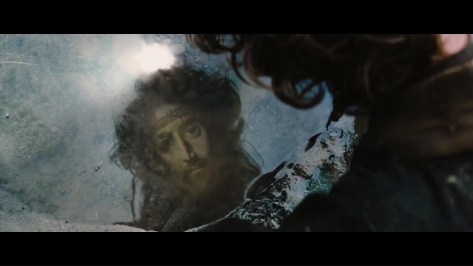
The Witch, shot by Jarin Blaschke
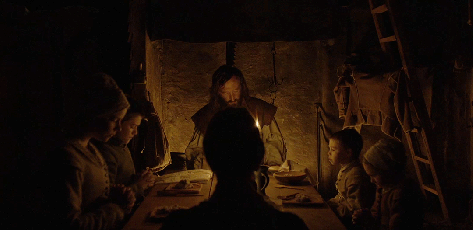
Lion, shot by Grieg Fraser
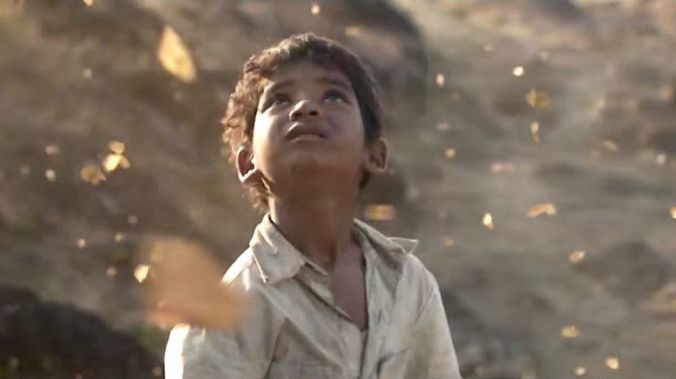
La La Land, shot by Linus Sandgren
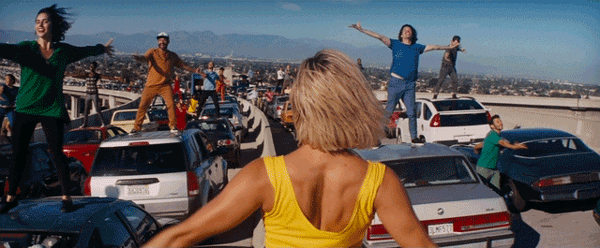
Winner:
Moonlight, shot by James Laxton
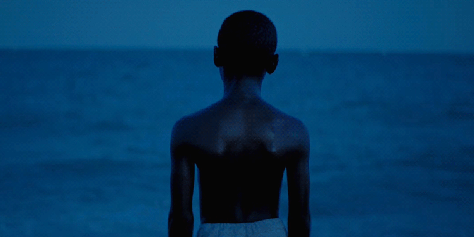
Cinematography at its core is about the way we shape what the eye of the camera is looking at. The colors of the world we capture, the framing and the motion that tells us what these people are thinking and feeling. With that, no movie had cinematography more key to its aims and no movie succeeded more in what it tried to accomplish than Moonlight. Laxton’s eye shows us the beauty of this world, the blue shadows and the contours of the light. It shows us the way that people hold back and the pain and joy they feel. It’s Laxton’s cinematography that makes a scene between two men at a diner so pregnant with meaning, the shadows hiding the tiniest movements of their face and then revealing what they’re trying to hide. This is a gorgeous film that uses its camera at every step to tell the story.

